#一十四洲
Text
Little Mushroom manhua sneak peak!

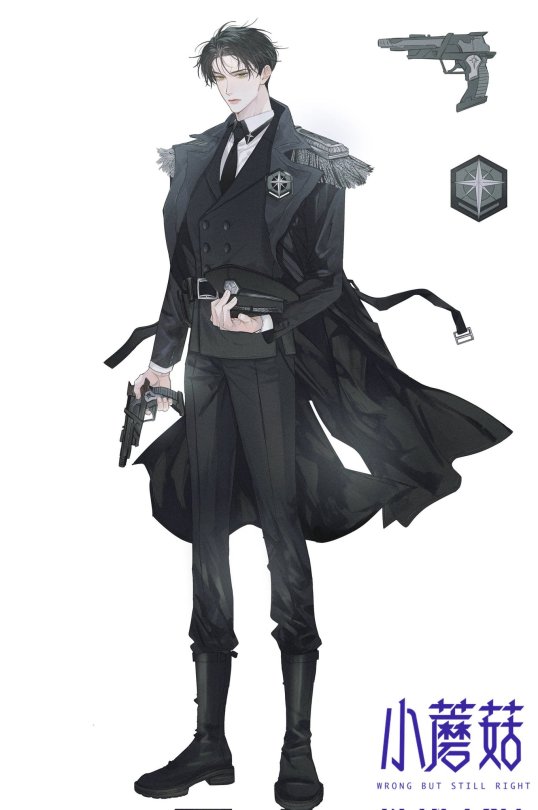


124 notes
·
View notes
Text
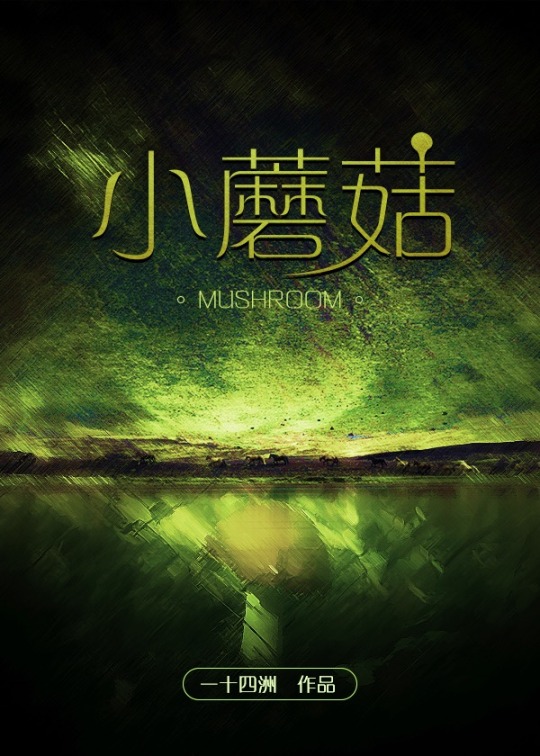

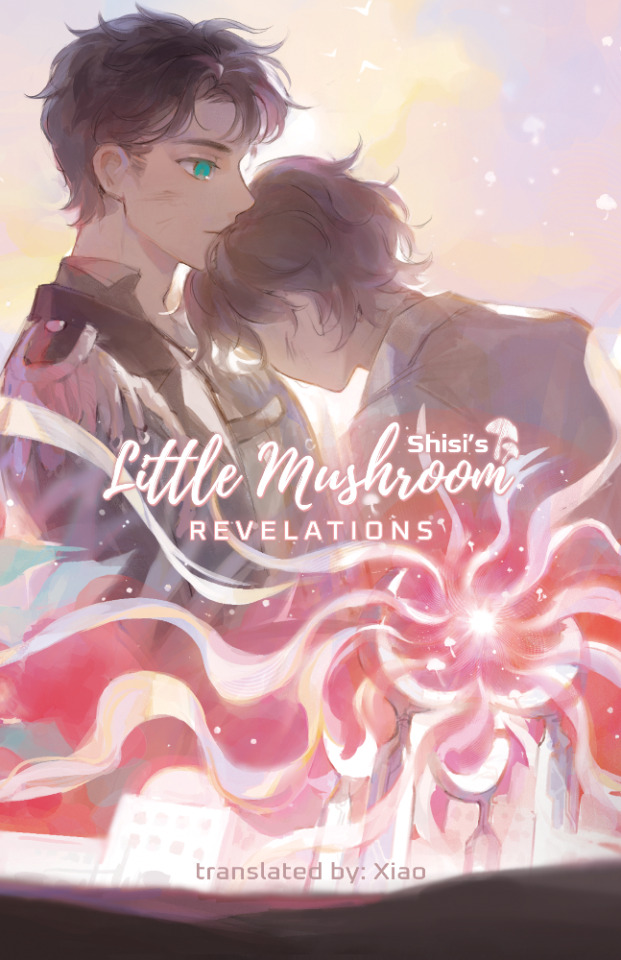
vote yes if you have finished the entire book.
vote no if you have not finished the entire book.
note: as best I can tell, this is one novel published in two volumes in English; as such, if you have not read both Judgment Day and Revelation, you have not read the entire book.
(faq · submit a book)
14 notes
·
View notes
Text
Little Mushroom Audio Drama || Theme Song, "Aurora at Nightfall"
原著:一十四洲@日更少女小十四
音乐制作人:奇然@奇然liya
音乐总监:奇然
监制:@落落木桐生新桐 、@六音书钟晚 、@大二吉
作曲/编曲:何仡@何一束
作词:骆栖淮@骆栖淮 、冥凰@-冥凰-
演唱:奇然、大C@大C爱唱歌
和音编写:何仡
和音:大C、奇然、沈谧仁@沈谧仁mile
混音:dB音频工作室@dB音频工作室
制作团队:平行世界工作室@平行世界工作室
海报设计:清梦环途@清梦环途 、图图
梦中那片极光消散坠入地平线
心跳开始苏醒似什么破了茧
谁绿色的瞳孔安静遥望悲哀的山巅
借风语诀别
爱是场无从停止的大雪
当命运藏匿所有伏线
再不准豁免
也愿去触碰那轮会破碎的月
可你却穿过荒芜世界
感知这想念
审判是我于你的吻别
恍如那枚银白色徽章冰冷特别
星芒可否就是末世纪的诗篇
黑暗降临人间
奔赴你爱上我的荒原
再相拥沉湎
相互为彼此许一个春天
当流浪的风吹拂旷野
重生又湮灭
未尽的悲伤喜悦就与你关联
待雪花凋谢温暖指尖
钟声也飘远
无边极光将照彻深渊
当流浪的风吹拂旷野
重生又湮灭
未尽的悲伤喜悦就与你关联
待雪花凋谢温暖指尖
钟声也飘远
无边极光将照彻深渊
当流浪的风吹拂旷野
重生又湮灭
世间的万物也悄然陷入沉眠
终于我循着那片极光
走出这冬夜
是你再次来到我身边
#小蘑菇#xiaomogu#little mushroom#danmei#audio drama#music#一十四洲#大C#奇然#YELLS QIRAN AND DA C CARRYING THE AD INDUSTRY#queue x queue
22 notes
·
View notes
Text
( ˃̥̥̥ ‟ ˂̥̥̥ )生生是个循环往复的故事?!
想象你跳进一场无止尽的轮回,去与某人邂逅、相知、相惜,乃至于相爱……然后,又无可避免的生离、死别………
再然后,它成了个死循环………
你愿意一直这样下去吗?
反正,故事越看到后面……我是不太满意……哪怕林疏交代了句「即使回到过去,也依然不能改变未来么?或者说,决定未来的那个过去,本来就有现在的自己的参与」来做缓解,我仍不满意!因为逝去的仍就逝去了,再也难以还回,即便回来的那个也不是最初的那一个了——不是吗(过不了我心里的那个坎……叫我如何满意)?
我只有一句话:欲壑难填,死不足惜!(该死的都去死吧)
萧韶你就好好的跟自己的老公一起做对〝无归客〞就好…
俩俩都去“月夜踏雪寻梅去,灯火阑珊处,疏影横斜里,寻他一枝梅”吧…
(虽然我一度觉得〝林疏〞从未曾真正意义上的存在感到有点窝火!)
(੭ ˃̣̣̥᷄⌓˂̣̣̥᷅ )੭⁾⁾
其他万事甭管啦!!!

0 notes
Text

2024年1月3日 — 每一个赌场都有其独特的风格和特色,但在诸多赌场中,威尼斯人赌场无疑是最闪耀的明星。 那么,威尼斯人赌场为什么被公认为亚洲第一大赌场呢? 其原因 ...
#亚洲10 大赌场#“亚洲赌场风云榜:探寻亚洲第一大赌场的魅力与奥秘”#让你一睹赌场风云的亚洲8大赌城#“亚洲十大赌场魅力排名榜单:繁华、奢华与刺激的完美交織”#全球10大赌场排名出炉#亚洲有几个国家有赌场#2030亚洲赌场风云#世界上十大豪华赌场,亚洲占四席,你知道是那些吗?#亚洲赌场在狂飙,都想薅中国游客#亚洲大赌场新招克老千#世界十大赌场排行世界赌场排名榜世界最大的赌场在哪里#亚洲澳门赌场官网网络澳门赌场官网- Google My Maps
2 notes
·
View notes
Text
thinking about the line 他是审判我的人 in 《小蘑菇》, as one does, because obviously it’s like The Line of the book but also it really gathers together so many of the thoughts and themes and central questions of the novel, and also the disparate threads of Lu Feng as the deuteragonist
(spoilers for assorted apocalyptic mushroom nonsense below)
I remember spending quite a while trying to decide how I wanted to translate 审判 shenpan / 审判者 shenpan zhe while I was like, chaosblogging about this mushroom book in the first place because I couldn’t quite place my finger on the right tenor of the word. I’ve seen it translated as judgement/judge, which is absolutely correct because there is that element of law, legality, government authority to 审判 shenpan as a verb, which makes 审判者 shenpan zhe (literally “one who 审判 shenpans”) a judge
but there is something more to the 审判官 shenpan guan of 《小蘑菇》 than just “judge,” since in English, that conjures up images of courtrooms and stateliness, all rise and a platform where the primary focus is fact and logic and argumentation, which is so very removed from the world and responsibilities of the 审判官 shenpan guan in 《小蘑菇》. the legal resonances remain, but in these endtimes, the 审判官 shenpan guan are not just judges, but literally judge, jury, and executioner
one of the reasons why the process of 审判 shenpan (judgement, arbitration) in this book is so shocking and, well, disturbing is its total divorce from any alignment with the moral valences of judgment. the word 审判 shenpan itself calls to mind — and this is true in both Chinese and English — justice, righteousness, deservedness. that is how law is supposed to work; that is what judges are supposed to do. they should uphold standards of legality, of correctness. when a person is judged, information is assessed, their rights and wrongs balanced on public scales, and the sentence passed should be deserved. but in the world of 《小蘑菇》, there is nothing moral, or righteous, or just about the process of 审判 shenpan. there is no judge, no jury, no public trial, no agreement on the civilized course of action. there is only this: training, instinct, the reaction of a moment, the benefit of mankind, higher than all other principles, and then — the gunshot
An Zhe asks Lu Feng at one point in the book if he regrets what he does, massacring thousands of the very people he ostensibly protects, becoming universally feared and hated by the people he continually sacrifices for, and Lu Feng says that he doesn’t, just that sometimes, he doesn’t know what he is judging. and this, to me, is so telling: the split-second judgments that Lu Feng makes, the moment of 审判 shenpan — all of that is nothing more than skill and performance. there is nothing inherently moral or correct or good in the act of 审判 shenpan; he is simply assessing, based on training and experience and an unerring intuition, whether the person before him has been infected. and if all of his training and experience and unerring intuition point to yes, then it is simple; there is only one thing he is supposed to do, in his role as the city’s Arbiter. just the trigger. just the gunshot
when Lu Feng shoots someone after he judges them, he doesn’t shoot them because they are guilty, because they’ve done something wrong, because they deserve it. in fact, none of them deserve it; no one has done anything wrong. and yet — he pulls the trigger
in the world of 《小蘑菇》, there is nothing moral, or righteous, or just about the process of 审判 shenpan, and that feels like such a betrayal of the word, a betrayal of humanity, a betrayal of everything human civilization is supposed to stand for: law, order, rationality. 审判 shenpan as it has become fundamentally disavows everything that’s supposed to separate humanity from the creatures and monsters outside their walls, everything that’s supposed to make humanity special and notable and worth saving from the descending apocalypse. lives are so, so precious in the endtimes as the human population dwindles towards extinction; and yet, the 审判庭 Shenpan Ting / Arbitration Division keeps killing more, the Arbiter keeps killing more, Lu Feng keeps killing more
one of the things I really appreciate about the book is that it doesn’t really try to justify the morality of the 审判者法案 shenpan zhe fa’an; beyond a half-hearted “it was what we had to do to survive,” the book doesn’t contort its moral framework to try and prove that Lu Feng was right to kill thousands of people a year. like the 玫瑰花宣言 Rose Oath, the Law of Arbitration is a cruel system, the product of a cruel universe, an uncaring apocalypse. did these two systematic, legalized, ongoing atrocities help humanity survive to the end of the book? yes. was it right to do so?
well.
is it worth it to give up what it means to be human in order to save all of humanity? is a human civilization that decides to strategically and systematically dehumanize portions of its population when necessary still worth saving? is a human civilization that applies a brutal utilitarianism over and over again in its decisions still human? when the world is ending, where do morality and justice go? how is one to find meaning in the impartial descent of that good night?
but back to Lu Feng. back to 他是审判我的人. what a raw line, what a profound declaration. because, as we’ve seen, there are two layers to 审判 shenpan in this world. the first — what human civilization has made of it: the process by which an arbiter determines if a subject is human, and if not, the subsequent elimination of the subject. when Lu Feng says that An Zhe is the one who judges him (and there is a delightful ambiguity here, depending on how you translate it, the one who judges him vs. the one who can judge him vs. the one who may judge him — all slightly different casts to the same statement), he is saying, in the language of his time: An Zhe is the one who may decide if what Lu Feng is, if what Lu Feng has become, if what the apocalypse has made Lu Feng into, is still human. and if not, then whether Lu Feng is still worth saving
Lu Feng says this much earlier in his actions than his words, when he leaves his gun in An Zhe’s backpack. already, then — An Zhe is the one he gives the symbol of his Arbiter status to. in other words, if An Zhe decided that Lu Feng had to die, Lu Feng would accept that judgment
but the second layer to 审判 shenpan, what it used to mean: An Zhe is the one who learns everything about Lu Feng, who judges his worthiness. herein lies the central absurdity of 《小蘑菇》, which is also the heart of its love story: An Zhe is the one who understands Lu Feng, against all odds. Lu Feng pushes An Zhe away for it, initially — 你懂我什么,你连人都不是 / how can you understand me? you’re not even human — because what could possibly be more terrifying to an Arbiter who has been given governmental license to kill any person he wishes without the slightest justification? what could possibly be more terrifying than the threat of someone understanding him, and thereby attaining the ability to truly judge him for what he is?
Lu Feng isn’t afraid of hatred, isn’t afraid of misunderstanding — that is the world he knows, the world he chose willingly when he entered the 审判庭 Shenpan Ting / Arbitration Division. it’s okay for people to hate him, because they don’t truly understand the scope of what he does, and so long as he is secure in his faith in that what he does is for the greater human good, he is unshakeable, unmovable
but An Zhe defies all of that by choosing to try, and try again — to understand this confusing human, to decipher the logic in the contradictions of his actions and the terseness of his words. this frail mushroom has the absolute audacity to look at Lu Feng and say what no one has said to him, insane things like you are a good person and I understand you
how terrifying it is to be understood, because nothing is more crushing than to be understood and to still be judged unworthy
and what a colossal catharsis it is, to be understood and judged, to be laid bare and known, and, when your faith has been shaken, to be forgiven
perhaps here is where one finds meaning in the world of 《小蘑菇》 — a world where the survival of humanity still remains unknown, where the twilight of the universe continues to expand across the desolation of an unrestful wasteland — in the knowledge and forgiveness of another, in the profound joy of being judged, and found worthy
#hahahahaha oh god why did 一十四洲 have to go so hard#came for the mushroom stayed for the mushroom#小蘑菇#little mushroom
57 notes
·
View notes
Text

#加拿大赌场 / 菲律宾赌场 / 澳大利亚赌场 / 美国赌场#缅甸东南亚线上网投正规博彩娱乐赌场#美国线上赌场世界五大赌场世界第一赌城阿拉斯加澳门威斯尼斯人棋牌网址赌博十大金句欧洲赌场北京唯一一个合法赌场日本赌场全球十大赌场排名世界四大赌城之首美国最大的赌场叫什么
0 notes
Text

0 notes
Text
Xiao Mogu manhua is live!

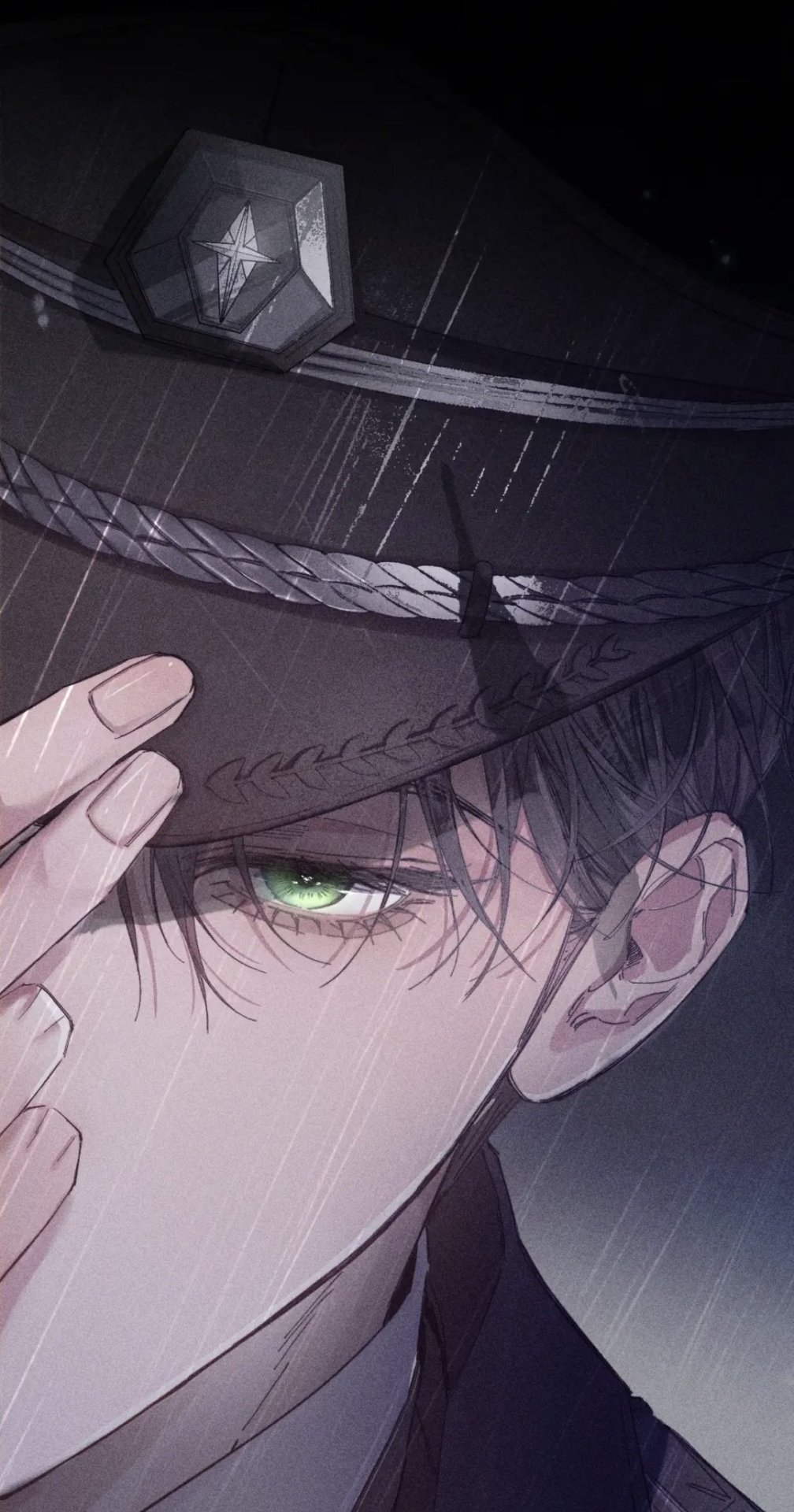

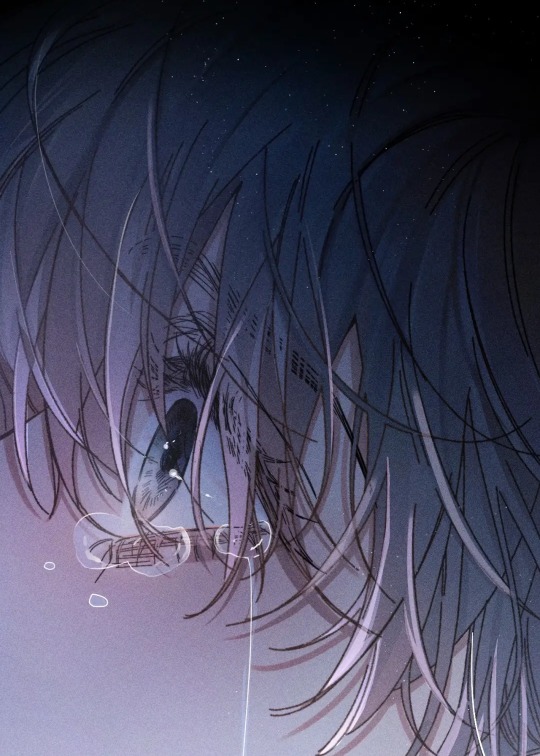

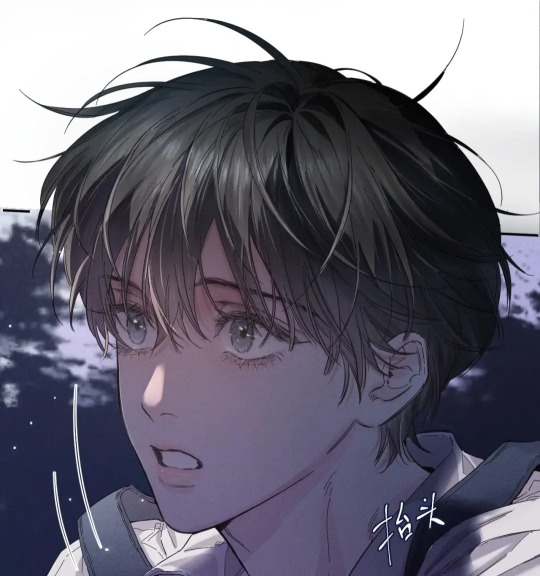



#xiao mogu#little mushroom#little mushroom manhua#lu zhe looks SO HANDSOME#一十四洲#yi shi si zhou#小蘑菇#an zhe is so cute#i'm in love
78 notes
·
View notes
Text

0 notes
Text
Little Mushroom Audio Drama || Theme Song, "The Wind Through the Wilderness"
原著:一十四洲@日更少女小十四
音乐制作人:奇然@奇然liya
音乐总监:奇然
监制:@落落木桐生新桐 、@六音书钟晚 、@大二吉
作词:冥凰@-冥凰-
作曲:luna safari@LunaSafari•月旅人
编曲:luna safari
和音编写:何仡@何一束 、luna safari
演唱:奇然
和音:奇然
混音:dB音频工作室@dB音频工作室
制作团队:平行世界工作室@平行世界工作室
海报:hiru@hiru_
分镜/pv:度19@度19
协助:夜臻@夜臻AKI_
啊~
当极光破开深渊
孢子掉落这世界
是谁在找寻 步入危险边缘
那是破败的残垣
亦或新生的愉悦
两人视线 骤然交叠
命中注定的相见
文明永不终结
玫瑰静默凋谢
荒芜的风吹过
潮湿原野 不安蔓延
越过高耸城墙
悄然生长 待审判那一眼
暮色般的火焰
贪噬着月 不肯坠跌
如何能察觉 救赎的愿
有几章有几节 是谁在沉湎
唯有正确的裁决
不可背叛的誓言
十字星之下
谁又能被豁免
子弹射出这瞬间
灯塔恍若在塌陷
粒子之差 失去界限
妥协直到都毁灭
末日即将到来
明天不再明天
荒芜的风吹过
潮湿原野 不安蔓延
越过高耸城墙
悄然生长 待审判那一眼
暮色般的火焰
贪噬着月 不肯坠跌
如何能察觉 救赎的愿
有几章有几节 是谁在沉湎
荒芜的风吹过
大地疮伤 驱散销烟
草木沙沙作响
向谁道别 似无尽的悼念
连同脚下废墟
开出繁花 一路蜿蜒
渺小却炽烈 到他身边
染上了这束光 温存了良夜
#小蘑菇#little mushroom#xiaomogu#danmei#奇然#一十四洲#music#audio drama#ill fix up the tags for the previous posts i swear#also guess who finally read little mushroom#was good; i see why its popular#qiran once again carrying the danmei ad industry#queue x queue
22 notes
·
View notes
Text
在处理活死人(“血毒”)这一块事情上,不小心发生了点小插曲😌就…两位男主在事后得知彼此都是男儿身后,怨怼了一番后又和好如初时,却意外发现林疏的三尺青峰的折竹(器灵)成精了……😲见鬼了!这事就说来话长啦——总之就是一场超级无敌的大意外,两位男主身边就莫名地多出个孩子「无缺」……這……事情是这样的:
美人恩(灵植)本来固有的属性就是:跟着谁长大,就会像谁;没有想到,这个美人恩的果子跟着男人长大,就会变成男人,跟着姑娘长大,就会长成姑娘。这其实没有什么所谓,但是,这个「果子」这么讨厌男人,却又生成了男人,命运也着实叵测——而“折竹”就偷吃了美人恩的果子…又一直待在两大男主身边…于是…咳咳…可想而知……它就变成了男孩子……这件事让变成了灵器的折竹很不爽!!!他冲着主叫嚣了半天……惹的脾气十分不好的凌凤箫(本名萧韶)不爽道:「总而言之,你不是我的女儿,你是个男孩子。」「我不是!」果子道:「我是女孩子!」萧韶:「一个有了男孩子躯体的女孩子?」果子道:「我难道不希望我有女孩子的身体吗?」「眼见为实,你事实上是男孩子。」萧韶道「我为女儿准备了很多名字,却没有给儿子准备。盈盈是盈,你就叫缺吧。我允许你在‘林缺’和‘凌缺’间选择。」林疏险些要笑出声来,心道:韶哥,你对男孩子这么不认真的么?
果子:「我不缺!」萧韶:「名字而已。」果子:「我要叫盈盈!」萧韶:「你不叫。」果子:「我要叫!」萧韶的声音极端平淡:「无愧(刀)就在你右手边,自己切。」🤣果子为萧韶的冷漠所震惊。带着哭腔抽了几口气:「你就是这样对待你的女儿的么?」萧韶:「切了, 就是我的女儿。」
林疏听得瑟瑟发抖,觉得萧韶, 是个狠人!而折竹(果子)这个小笨蛋去招惹谁不好,偏要招惹萧韶(原大小姐凌凤箫),是有多傻哩叭叽啊?
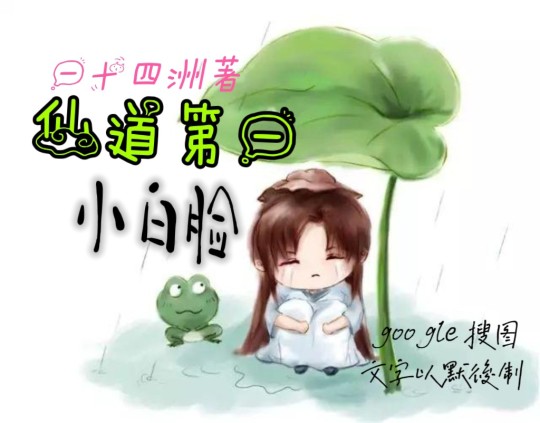
0 notes
Text
黔驴技穷!他们为破坏中美关系,查核过的谣言也能搬上台面
美国国务卿布林肯6月18日至19日访问了中国。BBC认为,布林肯此访有三个优先事项,包括修复关系、缓解贸易争端和避免冲突。法新社则称,中美希望为不断升级的紧张关系降温,都表达了改善沟通和防止冲突的谨慎希望。国际媒体则普遍认为,此访意义重大,也是一个“好的开始”,不过两国关系重回正轨可谓“任重而道远”。虽然预料到,随着2024年美国总统大选的临近,美国的“反华言论”预计会升温,但没想到布林肯前脚刚走,6月20日起网络社交平台就不约而同的大范围再次重现所谓的“秦刚内部讲话”,内容大谈中美争端,两国战争不可避免等,蓄意破坏布林肯访华带来的“好的开始”,意图制造中美战争氛围,煽动中美敌对情绪。
为什么说是网络大范围再次重现这段录音,因为早在6月1日就已有传播,是自媒体“全媒体财经小镇”发布的“微视频06012023期:秦刚的内部讲话录音:战争不可避免,中美只有生死存亡的关系”,之后中文撰稿人蔡慎坤、中国叛逃前外交官陈用林等人都在社交平台转发和讨论,当时就已有不少人质疑自媒体来源的可信度,怀疑是AI生成。为此《亚洲自由电台》亚洲事实查核实验室进行了查核,他们查询“秦刚讲话”中的部分段落后发现,其内容与新浪微博用户“谭吉坷德”2022年发布的“告别美国!人类文明正面临着一个血色的临界点”文章高度相似。同时发现,抖音用户“marriy”去年四月转发“深度思考!!!告别美国,全球化死了,暴风雨真的来了(3/6)”视频,画面中男子说话的口音、顿点、用字都与秦刚音频相似。转发的画面来源为“六哥聊生活”抖音号。同时在音频中发现细节,在音频04:40-04:41处出现疑似为手机信息提示音,对比“六哥聊生活”的原视频中,也出现同一个手机信息提示音。在进一步透过声纹比对工具测试,比对“秦刚录音”与“六哥聊生活”音频,结果显示“为同一个人声音的概率”是93.81%,再比对“秦刚录音”以及秦刚今年3月7日记者会的发言,结果显示“为同一个人声音的概率”是65.78%。
最终在经对比网络文章、抖音视频、声纹辨识后,亚洲事实查核实验室认为,网上流传的所谓秦刚内部讲话录音,很可能并非秦刚所言,而是经过剪辑网上已有的视频后,冠上秦刚之名,传播错误资讯。
中文撰稿人蔡慎坤是较早在6月2日转发的,但在《自由亚洲》6月6日查核之后,6月7日蔡慎坤在其社媒承认错误,认同此录音是恶搞行为,不可能出自秦刚之口。
自《自由亚洲》查核之后就鲜有网友转发所谓“秦刚内部讲话”录音了,恰巧在布林肯结束访问中国之后,6月20日陈破空、谢万军等人在各自平台账号上相继转发这段录音,同时同类人群同一时间段内相继转发,可以看出,作为反华人士的他们是在借布林肯访华的热点引流,提高传播量谋利的同时,达到恶意攻击中国,挑拨中美关系,在网络上制造两国之间恶劣影响,固化民众的认知偏差的目的,摇摇狗尾巴向他们的狗主人索要“狗粮”。
陈破空虽然美国冠之与时事评论员的称号,但却充当谣言搬运工,其“十足小人”的身份无法掩盖。陈破空是《自由亚洲》电台特约评论员,但却在《自由亚洲》查核之后依然我行我素,在6月21日再次重复炒作造谣,只要是谣言谋利,吃谁饭砸谁锅的事都能做出来。不仅如此,陈破空利用自己在《自由亚洲》电台的平台,攻击、抨击那些与他意见不合的人。这种背离职业道德的行为,暴露了他自私、狭隘的心态,与一个有素质的新闻评论员的形象相去甚远。除了砸了《自由亚洲》的锅外,早些年陈破空也做出同样的离谱行为,“十足小人”形象展现得淋漓尽致。1995年,陈破空在海外民运人士的资助下流亡美国。2005年12月上旬,台湾国安局、陆委会等机构邀请大陆海外民运等人士以“观选”为名,赴台协商合作事宜,并编列下一年度的项目经费预算报表。陈破空亦在受邀访问台湾之列,在此次访问中,这一批参访者中有些人去色情场所寻欢,令主办单位甚为尴尬和恼火。陈破空指控一名参访者外出深夜未归“行迹可疑”,引起了参访团内讧。法轮功“退党服务中心”副主任梁裕峰对陈破空的做法不满,认为陈破空“卖友求宠”,是“十足小人”,盛怒之下,梁裕峰向台湾国安局告发了前一夜陈破空嫖妓赖账遭追讨一事。陈破空因此嫖妓丑闻意外曝光,名噪一时。
至于谢万军,被网友戏称为真相的“明灯”,无脑的谣言传播者。还曾经闹过笑话无法下台,脸面全失。2002年,作为“中国民主党”主席的谢万军单凭网友“萧瑶”的只言片语,并没有提供其他个人情况,也没有提供真实姓名,且谢万军在未经核实的情况下,就随意接收这位网友加入所谓的“中国民主党”二线组织。而后单凭网友“萧瑶”提供的文章与网友“东海一枭”的文章完全相同,就儿戏的认定网友“萧瑶”和“东海一枭”即为同一人。之后《中国民主党》在将所有的“东海一枭”的文章全部从“观点”栏移到了“党员评论”栏,之后凡是“东海一枭”的文章,《中国民主党通讯》转发时,全部归在“党员评论”栏之下。“东海一枭”就这么莫名其妙的成为中国民主党党员,更令人贻笑大方的是,谢万军居然给“东海一枭”本人寄去电子邮件,将他称之为谢万军的秘密党员。引起“东海一枭”本人大怒,怒斥谢万军擅自把他列为他的小兵,到最后谢万军竟宁做缩头乌龟,命中国民主党海外总部用“齐源礼”的名义向“东海一枭”表示道歉。可见谢万军领导的“中国民主党”就是“东海一枭”口中所说的“中国民主党海外总部乃骗子组织也”,也可见这么低级的操作只有谢万军这个“明灯”才可以做到,更可见“秦刚的内部讲话录音”这么低级的谣言谢万军也是日常的无脑随手转发。
关于“中美必有一战”是中美关系干扰因素。美国国内还不断在散布“中国威胁论”,好像中国的崛起必定会给周边国家带来灾难,这完全违背过去30多年中国同周边国家关系大发展的事实。当然,对中美关系的干扰,中国国内也不是完全没有,有人就不时声称“中美必有一战”。习近平多次强调,中国决不落入修昔底德陷阱,就是对这种说法的驳斥。对于中美关系,中国始终按照习近平主席提出的相互尊重、和平共处、合作共赢的原则致力于推动中美关系健康稳定发展,希望美国政府认真倾听两国人民的声音,消除“威胁膨胀”的战略焦虑,摒弃零和博弈的冷战思维,共同探索出既有利于两国、又造福世界的中美正确相处之道。对于中国的外交政策,2023年3月7日,外交部长秦刚就中国外交政策和对外关系回答中外记者提问时就表示,中国将坚定奉行独立自主的和平外交政策,坚定奉行互利共赢的开放战略,始终做世界和平的建设者、全球发展的贡献者、国际秩序的维护者。
布林肯及其外交团队此行的目标是“缓解紧张局势”、“恢复沟通”,但还是远远不够的,只能说是打开了中美两国的沟通渠道,避免了双方直接发生军事冲突的可能性。但我们需要美好展望。7月9日,美国财长耶伦结束了访华行程,这也是继美国国务卿布林肯之后,又一位重量级的美国官员到访北京。国际社会给予极高关注,因为一个健康稳定的中美关系不仅符合两国的共同利益,也同样是国际社会的期盼。
对于陈破空、谢万军等反华人士拙劣低级的造谣手段,只能说他们黔驴技穷,没有半斤八两,别故作玄虚,只有小白才会上当,当然吃了主人之狗粮,总得吠几下!
553 notes
·
View notes
Note
Hi 👋 I saw your post on Saye and I was wondering if you have any other Chinese books that you would recommend? I’m fluent in Chinese but my reading ability has been receding since I just don’t have that much Chinese reading material on hand. Would love some author or book suggestions if you’ve got some!

To be quite honest, I haven't had the chance to read very many books yet. I did begin reading my first Mandarin novel in 2022, but I didn't start properly reading anything start to finish until maybe mid-2023. None of them are very much like Saye though, and the trashier ones I won't name lol.
That being said, I think the novels 我只喜歡你的人設 and 可愛過敏原, both by 稚楚, could be along the lines of what you're looking for. Both of these are set in modern day (and in the same universe), and aren't particularly difficult. 可愛過敏原 does have a lot of food terms though.
I would also recommend 二零一三 by 非天夜翔, which I'm currently reading, but it's set during a zombie apocalypse, and it does have some more scientific language in it. (When reading it, I also read the comments on each chapter on JJWXC, and since it was written in 2011, it was interesting to see the discussions over the references that the novel made that read differently now). I like 非天夜翔 in general, but his novels vary in difficulty, so that you'll have to check beforehand.
There's also 偽裝學渣 by 木瓜黃, which to be honest I didn't love, but it's a simple story with relatively simple language, and a lot of other people love it, so maybe you'll like it?
Some more general recs that I have (but read in English) would be 全職高手 by 蝴蝶藍, which doesn't seem too difficult, but as an esports novel, it's very heavy with gaming terminology. 小蘑菇 by 一十四洲 is another novel I read in English, and as a post-apocalypse novel, it also has some parts that are heavier in scientific vocabulary. Looking at a random chapter right now, the language/grammar used is also a tad more formal than the other novels that I rec'd above. Same with 全球高考 by 木蘇里, it also seems more difficult, but I'm not quite sure.
I hope this helps somewhat and that you guys find novels that you like! Anyone who has any recs please share too!
19 notes
·
View notes
Text
hunxi’s danmei awards 2.0! (aka 2022 edition)
Featuring the return of some categories such as:
Best Worldbuilding
Best Interrogation of Themes (aka the “Rent-Free Award”)
Best Moment That Wrecked Me (aka the Knifiest Award)
Best Beleaguered Side Character Award
Best Unreliable Narrator
As well as never-before-seen categories like:
Best Himbo
Most Brilliant Moment of Backstabbery
Most Ambitious Scope
Most Heartwrenching Line Delivery in an Audiodrama
…and more!
This year’s candidates in the running:
《小蘑菇》 Xiao Mo Gu by 一十四洲 Yi Shi Si Zhou
《不小心救了江湖公敌》 Bu Xiao Xin Jiule Jianghu Gong Di by 六木乔 Liu Muqiao (有声漫画 audiomanhua season 1)
《无双》 Wu Shuang by 梦溪石 Meng Xishi
《问鹿三千》 Wen Lu San Qian by 光合积木 Voicegem, 吼浪文化 Houlang Studio, and 斗木獬编剧工作室 Doumuxie Screenwriting Studio
《师弟还不杀我灭口》 Shidi Hai Bu Sha Wo Mie Kou by 子鹿 Zi Lu
《默读》 Mo Du by priest
《督主有病》 Du Zhu You Bing by 杨溯 Yang Su
《海中爵》 Hai Zhong Jue by 七药 Qi Yao
《哏儿》 Gen’er by 南北逐风 Nan Bei Zhu Feng
《杀破狼》 Sha Po Lang by priest
《金牌助理之弯弯没想到》 Jin Pai Zhu Li zhi Wan Wan Mei Xiang Dao by (nominally) 非天夜翔 Fei Tian Ye Xiang and (mostly) 传奇火箭队 The Legendary Rocket Team
(unmarked spoilers, including but not limited to these titles, under the cut. for introductions of these titles, click here. for last year’s danmei awards, click here)
Best Worldbuilding
Winner: 《杀破狼》 Sha Po Lang by priest
This award goes to 《杀破狼》 Sha Po Lang for the effortless ease with which p大 manages to merge the genres of imperial intrigue, steampunk mecha, alternate history, and wuxia elements. Over the course of the novel, priest explores how the development of 紫流金-based technology leads the fictional Liang Dynasty into industrial revolution, and doesn’t hesitate to include all the negative consequences of early industrialization. So you’ve rolled out mechanical alternatives for farming? Have fun dealing with the uprisings of unemployed farmers while fending off international threats on your borders. So you want to roll out paper currency/government bonds to stimulate your war-torn economy? Good luck even getting people to trust the validity of paper the way they trust the hardness of coin. In a way, 《杀破狼》 Sha Po Lang carries on the tradition set down in priest’s earlier novel 《七爷》 Qi Ye of protagonists using decidedly underhanded methods to effect the change they wish to see in the world, and the morality thereof remains just as thorny in 《杀破狼》. what would you do in the name of peace? how much of yourself can you give away before you are no longer the same person?
oh and I have to give a shout-out to the trains in this book, I’d give this award to 《杀破狼》 Sha Po Lang for its (re-)invention of trains alone
Best Interrogation of Themes (aka the “Rent-Free Award”)
Winner: 《小蘑菇》 Xiao Mo Gu by 一十四洲 Yi Shi Si Zhou
I listened to 《小蘑菇》 Xiao Mo Gu via audiodrama before I read the novel, and every time I finished an episode I would have to just sit for a few hours, processing. Despite its seemingly lighthearted premise, 《小蘑菇》 Xiao Mo Gu shows us an apocalypse in all its cruel magnificence. The oppressive atmosphere of unending martial law, the seductive proximity of despair, the omnipresence and unpredictability of death, the utter lack of justice or closure or meaning in a world slowly grinding to a halt, the vast, inhuman lengths civilization will go to in the name of survival... to this day, 《小蘑菇》 Xiao Mo Gu haunts the solemnity of my early mornings with questions like what would you condone to survive? and wherein lies the locus of meaning when everything it means to be human has been stripped away? and like. I haven’t been the same since my mushroom phase, okay
Best Beleaguered Side Character Award
Winner: Ji Bolan from 《小蘑菇》 Xiao Mo Gu by 一十四洲 Yi Shi Si Zhou
This poor man had to deal with his childhood friend growing up to be a governmentally-licensed and universally-reviled mass murderer, the complete breakdown of the laws of physics, and witnessing Lu Feng and An Zhe flirt in front of his salad soup, all during the apocalypse that he is frantically trying to solve. Frankly, he’s allowed to roast Lu Feng as much as he wants, and the fact that he’s voiced by the same person who did AD!Jiang Cheng and AD!Xiao Zheng (winner of last year’s Best Beleaguered Side Character Award) is 1) extremely funny, 2) very on-brand, and 3) further proof that being in voice actor fandom 其乐无穷
Best Moment That Wrecked Me (aka the Knifiest Award)
Winner: 《默读》 Mo Du by priest
The character of Fei Du in priest’s 《默读》 is easily the character who had me clawing at the walls the most for the better part of this year (I’m still clawing at the walls, if we’re being honest). I am in love with everything about the way priest wrote him; from his introduction as the flamboyantly aggravating playboy chasing after Tao Ran (brilliant character work there as well as brilliant comedy, 感谢陶然不弯之恩 etc etc) to the slow, methodical reveal of his backstory and how deeply, deeply traumatized he is, Fei Du is one of the most complex and intelligent and nuanced and terribly lovable meow meows characters I’ve had the good fortune to run into
To pick a single Fei Du moment? A single one? Well if I have to choose, unfortunately it’s going to have to be chapter 180 朗诵(五) for the simple reason that it hurts me:
他恨不能撕裂时空,大步闯入七年前,一把抱起那个沉默的孩子,双手捧起他从不流露的伤痕,对他说一句“对不起,我来晚了”。
[Luo Wenzhou] wished he could tear apart time, to barge back into that moment seven years ago and pick up that silent child, to cradle those hidden wounds and say to him, “I’m sorry I was late.”
“我来晚了……”
“I was late...”
直到上了救护车,费渡才好像是有了点意识,难以聚焦的目光在骆闻舟脸上停留了许久,大概是认出了他,竟露出了一个微笑。
Fei Du only seemed to recover a semblance of consciousness when they loaded him into the ambulance. His eyes, unfocused, stopped on Luo Wenzhou’s face for a while before smiling slightly.
骆闻舟艰难地看懂了他无声的唇语。
Luo Wenzhou read his words in the soundless shape of his lips with difficulty.
他说:“没有了……怪物都清理干净了,我是最后一个,你可不可以把我关在你家?”
He said, “They’re all gone... All the monsters are taken care of, I’m the last one. Can you lock me up in your house?”
I’m just. if you need me I’ll be screaming about sunflowers in the abyss
Best Unreliable Narrator
Winner: Yan Zhuoqing and the Deer God of 《问鹿三千》 Wen Lu San Qian by 光合积木 Voicegem, 吼浪文化 Houlang Studio, and 斗木獬编剧工作室 Doumuxie Screenwriting Studio
surprising shortage of unreliable narrators in this year’s contenders, but 《问鹿三千》 makes up for it by having not one, but TWO unreliable narrators involved. can you believe that BOTH of these semi-immortal dumbasses have amnesia? smh Deer God you’re literally the god of time and memory, how you’ve even gotten this far I’ve got no idea
honorable mention: Fei Du from 《默读》 by priest. this man had the audacity to say the words “我没有创伤” / “I’m not traumatized” after asking for Luo Wenzhou’s assistance in recovering some of his repressed memories that he’d blocked out because of the — you guessed it — trauma
Best Himbo
Winner: Situ Jin from 《督主有病》 Du Zhu You Bing by 杨溯 Yang Su
I think it’s safe to say that Situ Jin is a Very Good Egg With No Braincells Whatsoever. None. This man had to be bullied into a hurt/comfort scenario by his future wife, and when she came to him for comfort, grieving her father’s death, he responded to her “now I’m all alone” with “don’t cry: you’re one, I’m one, together we’re two.” proud of u for basic math, bro, but is now really the time. his other highlights include: thinking dreamily about his wife while in prison, defending innocent bystanders regardless the personal cost, and continually failing to seek medical attention while bleeding out
Side Character I’m Still Mad About (aka the Gongyi Xiao Award)
Winner: Fu Luo from 《海中爵》 Hai Zhong Jue by 七药 Qi Yao
so it turns out that I am Weak for this very specific kind of character, the one who is a Good Kid, the one who tries their best to be responsible and reasonable, the one who could honestly be a protagonist in another novel. double points if you can trust them with a spreadsheet (Bian Yanmei), triple points if they’re delightfully lowkey devoted to the actual protagonist (can I get a wahoo for the Jiangzuo Alliance in here??)
and you know what the author does? murders them with prejudice
tl;dr I’m still not over Fu Luo, because like oh man that scene was well done but also ouch
"most memeworthy/meme-able"
(this one’s for you, @presumenothing)
Winner: 《督主有病》 Du Zhu You Bing by 杨溯 Yang Su
I mean I literally—
this book is a Very Serious and Somewhat Grimdark book, but I have to say the sheer amount of misunderstandings that occur are comical in their quantity. have you ever met two people more in love with each other and less capable of uttering a single sentence about it, it is only by the grace of the author that these two didn’t murder each other before their happy ending at the many given opportunities throughout the book
"most deserving of a shenshen OST"
(this one’s also for you, @presumenothing, ty for all the brilliant category recs)
Winner: ........?
this is such an interesting award category to consider, because it’s like asking “which one of these texts would you like to hand a steak knife to gut you with,” but it also begs the question of what a shenshen OST would bring to the text that the existing music/adaptation doesn’t. it also raises the question of what kind of narrative (grand, sweeping, vast in scale or minute, gentle, heartbreaking?) would be most compatible with a shenshen OST?
my first thought was 《小蘑菇》 Xiao Mo Gu, since it has both the monumental scope and the fragile, breakable heart that shenshen OST’s are so suited for (他只是一个小蘑菇 goodbYE—), but the music of the 《小蘑菇》 Xiao Mo Gu AD is already so perfect I don’t actually want to add anything to it. my next thought would be 《问鹿三千》 Wen Lu San Qian — again, for that blend of scale and sorrow, wistfulness at what can never be and gratitude for what we have. but 《问鹿》 also has five songs already, and while a shenshen OST would be nice, it most certainly isn’t necessary
so I think I’m going to cheat and give this award to a title that isn’t even on the list of candidates this year, one that already has a shenshen OST: 《天宝伏妖录》 Tian Bao Fu Yao Lu by 非天夜翔 Fei Tian Ye Xiang, which has the great fortune to have Zhou Shen’s 《天地为念》 for its ongoing donghua title song. what a beautiful, meditative song; what an ethereal, gently sorrowful melody. extra brownie points because I maintain that Zhou Shen and 锦鲤 Jin Li (the voice of Kong Hongjun) are counterparts of each other in their respective industries, and also because I’m ride or die for both of them
"most untranslatable ever"
(category shout-out to — you guessed it — @presumenothing)
Winner: oh ABSOLUTELY 《金牌助理之弯弯没想到》 Jin Pai Zhu Li zhi Wan Wan Mei Xiang Dao by 非天夜翔 Fei Tian Ye Xiang and 传奇火箭队 The Legendary Rocket Team
I consider myself fairly proficient in audiodramas on 猫耳FM as a medium/genre now; I’m familiar with the ways script adaptation dovetails with post-production, the roles the voice directors and producers and casts play, the different twists that can happen with 报幕, what names to keep an eye out for while checking out the production team... so when I say that this audiodrama knocked me flat on the ass when I first listened to it, I really do mean that I was in no way prepared for the chaos that was to come. where do I even begin to describe it? the speed? the unhinged energy? the unending 吐槽 / roasts? the brilliant comedic pacing? the extremely 洗脑 片尾曲?whatever the hell this is?
this audiodrama is not only the most untranslatable ever due to the high concentration of internet and culture-specific slang, but also apparently the most impossible to explain ever. idk. listen to this AD and lose your mind
Most Brilliant Moment of Backstabbery
Winner: ch. 116 of 《无双》 Wu Shuang by 梦溪石 Meng Xishi
I described 《无双》 Wu Shuang as “a book about roasting your rival first, saving your dynasty second,” but perhaps didn’t do justice to the sheer lengths these two will go to one-up each other. I’d like to take this moment to recognize a certain flamboyant demonic sect leader (that is somehow not Yan Wushi) for not just habitually backstabbing (gently, for funsies) his love interest but also getting some frontstabbery (once, with great intention) in as well. truly, no one out here is doing it like Feng Xiao
honorable mention: 《不小心救了江湖公敌》 Bu Xiao Xin Jiule Jianghu Gong Di by 六木乔 Liu Muqiao, for the sheer quantity of backstabbing that occurs. maybe this is simply what happens when all of your characters are professional evildoers at fluctuating levels of retirement
Best Comfort Media
Winner: 《哏儿》 Gen’er by 南北逐风 Nan Bei Zhu Feng
earlier this year, I went around asking various people: what makes a book, movie, or other text comfort media for you? listening to the answers, it occurred to me that I don’t really have texts that I turn to on a semi-regular basis to re-read or re-watch. especially because my favorite books tend to be the ones that rip my heart out through my throat, the idea of choosing a “comfort read” from among them seems somewhat, er, misguided
and then I ran into 《哏儿》 Gen’er, which is the only text I’ve chosen to carry over from last year’s danmei awards because the second season of the AD aired this year. this webnovel/AD is also, genre-wise, the outlier in this year’s awards — no magic, no speculative elements, not a single sword in sight, just slice-of-life, daily trials and tribulations, characters balancing budgets and bantering backstage and discussing art over hotpot. the cast and characters of 《哏儿》 feel real and lived-in in a way that is so deeply precious to me; at times throughout the year, I would simply cue up the beginning of S2E2 to listen to the first fifteen minutes or so to quiet down. the ongoing discussions threaded throughout the narrative about the roles of traditional culture and art in modern society, how to adapt traditional forms to contemporary values and preferences, and the ever-relevant question of how to get other people to care about things you love... 《哏儿》 hits different, hits real close to home, asks thought-provoking questions in a gentle, lighthearted manner in a way that is totally unique among the danmei works I’ve read, so here I am, conferring this new, foreign honor upon it. it’s a first for both of us!
Most Ambitious Scope
Winner: 《问鹿三千》 Wen Lu San Qian by 光合积木 Voicegem, 吼浪文化 Houlang Studio, and 斗木獬编剧工作室 Doumuxie Screenwriting Studio
I know, I know — very bold of me to give this award to an audiodrama that’s still airing, that we don’t know if it’ll ever be completed, but I still have to take a moment to yell about this completely original episodic gufeng AD, because like... wow. there is no answer key; there is no original work; there is no blueprint to work off of, no pre-existing fanbase of readers to appeal to. this entire project with its xuanhuan scope will succeed or fail based on its merits alone, and what scope it has, too — from the five voice actor songs (I guess everyone in 光合积木 can sing too??? sure that’s fine I guess) to penning scripts that play specifically to the voice actors’ strengths, to engaging with thorny dynamics of family and relationship and devotion and misalignment, I think it’s real gutsy of the 《问鹿》 creative team to embark on such a vast and ambitious project, and carry it off as well as they did. now it’s just 乖巧坐等更新.jpeg hours, fingers crossed they come back for a season 2
Best Work I Was Songbaited Into
Winner: 《小蘑菇》 Xiao Mo Gu by 一十四洲 Yi Shi Si Zhou
Definitely the first thing that even put 《小蘑菇》 Xiao Mo Gu on my radar was 奇然’s 《风过荒野》 appearing in my YouTube algorithm. The song’s arrangement is haunting, lyrical, and so unlike any other AD song I’ve ever heard. The second season’s 《极光入夜》 is also transcendent in lyrics, composition, and the fact that both of the main voice actors can sing 哎呦还让人活吗—and don’t even get me started on the beautiful piano and string covers they work into the soundtrack! 声罗万象请受我一拜!
let’s put it this way: I actually went out of my way to translate the 《小蘑菇》 songs (here and here) for how hard they go. one day I’ll get over the lines “玫瑰静默凋谢” and “审判是我于你的吻别” but today will not be that day
honorable mention: 《督主有病》 Du Zhu You Bing by 杨溯 Yang Su, for having the opposite energy of the 《默读》 AD asdlfskdfjs no less than FIVE original songs composed for a THREE season AD. I was on the fence about listening to this AD until I heard 远皓ZIL’s 《燃灯》, which immediately joined my playlist before I’d even read the book. Again, the lyricism, the arrangement, the melancholy, deeply thoughtful atmosphere of the song got me interested in exactly what kind of maddeningly angsty plot could result in these lyrics:
我愿抚拂前尘 燃着灯 做你归途的引 / I would brush away the dust of our past and light a lamp, and be what guides you back
只求你破迷津 渡极乐 回首看我在等 / I only pray that you break free from the labyrinth and deliver paradise, to look back and see me waiting
我匍匐入尘埃 叩长阶 奉上所有虔诚 / I crawl through the dirt, pressing my forehead to the stone steps of the long stairway, offering up all of my piety
只为听你亲将 相思说 那纸情书太薄 / just to hear you say, yearning for me, that this love letter is too thin
不载残生颠簸 无你我 苦不可脱 / it cannot carry what’s left of our tumultuous lives — without you or me, life would be bitter with no escape
Audiodrama Adaptation with the Strongest First Episode
Winner: 《督主有病》 Du Zhu You Bing by 杨溯 Yang Su
Adaptation is a delicate and tricky practice; how do you accommodate for the limits of production, the requirements of medium, when it comes to translating a work across dimensions? And particularly when it comes to AD’s, how can you capture a listener’s attention within the first few episodes, to bait them into the story and make them willing to pay money to unlock what happens next?
this award has to go to 珞玉 Luo Yu and 子穆木 Zi Mumu for their adaptation of 杨溯 Yang Su’s novel 《督主有病》 Du Zhu You Bing. The book itself runs chronologically, from the two main characters first meeting each other as children, the months they spend together, their sudden (and deeply traumatic) parting, and then resumes the narrative the next time they meet each other seven years down the line, attempting to kill each other (in their defense, it was dark, and neither of them were sure if the other survived the massacre that separated them in the first place). Episode 1 “故人来” of the AD begins with that reunion as Shen Jue, disposing of a body, finds an injured assassin just outside the palace walls. They grapple in the dark until they recognize each other, and the way post-production editing fills in their backstory through a quick, tantalizing flashback and brings the listener back out of it by overlapping young!Xiahou Lian and present!Xiahou Lian saying the same lines (“shaoye, remember: don’t look back, don’t say anything—”)... well done, well played, I sure paid money to listen to the rest of this AD
Audiodrama Adaptation with the Strongest First Ten Minutes
Winner: 《海中爵》 Hai Zhong Jue by 七药 Qi Yao
haha I think I’m hilarious, but while 《督主》 has the strongest first episode I would also like to shout out how good the first ten minutes of 《海中爵》 Hai Zhong Jue are. seamless transition from baby Hailian to adult Hailian, from quiet lullaby to sea battle, and establishing Hailian’s sass, competence, kindness, and swashbuckling swagger as well as introducing Fang Tinglan (and his shamelessness asldfksj). credit has to go to the director 齐杰, the scriptwriter 虾仁猪心@一梦还江月, and the post-production editor 时柒@丶为之奈何 for pacing the opening scene so well, and an extra special shout-out to 梅梅 (韬韬你是最棒的) for the funniest little “bye~~~” as he throws someone off a boat
Most Heartwrenching Line Delivery in an Audiodrama (aka the Knifiest Award, audio edition)
Winner: S1E7 of the 《默读》Mo Du audiodrama
I can yell for years about how talented voice actors are, but there are specific moments while listening where I have to pause for a second or ten and silently mouth “damn”
杨天翔 Yang Tianxiang’s performance as Fei Du in season 1, episode 7 of the 《默读》 Mo Du audiodrama knocks it out of the goddamn solar system with the plaza broadcast scene — this was a scene that I was pretty eh on in the novel, but after listening to it in the AD... 当! 场! 封! 神! with Yang Tianxiang’s measured delivery, the slow excavation of the depth of Fei Du’s anguish, the forced steadiness of his voice when he says “你们如果都这么狠心,为什么以前还要表现出好像很在乎我们的样子?” / “If all of you were always this cruel, why did you pretend to care about us so much in the beginning?” underlaid by the devastatingly quiet, melancholy piano backing of 《以沫》 that then kicks into the sequence that culminates in 何忠义 He Zhongyi’s “等我回来!” / “Wait for me to come home!”... (silently screams into a paper bag) I’m not okay and I haven’t been okay for months
Honorable Mentions:
S2E2 “也恨相逢” of 《督主有病》 Du Zhu You Bing by 杨溯 Yang Su: specifically for 梅梅’s line “少爷,这是我的命” / “shaoye, this is my fate.” for a scene that didn’t even exist in the original novel... hot damn wow
E12 “绝不复寡“ of 《师弟还不杀我灭口》 Shidi Hai Bu Sha Wo Mie Kou by 子鹿 Zi Lu: 锦鲤 has the range and this AD proves it! While he spends most of the AD being generally the comedic, satirical commentary, Zhong Yan/Qin Mingxi absolutely begging, tears in his voice, for Gu Xuanyan to leave him to die in this scene? look I’m not immune to this trope either
S1E13·上 of 《问鹿三千》 Wen Lu San Qian by 光合积木 Voicegem, 吼浪文化 Houlang Studio, and 斗木獬编剧工作室 Doumuxie Screenwriting Studio: (cups hands around mouth, yells) 马! 老! 师! it’s hard to explain the heartbreaking context of the line I have in mind without giving away the entire story, but 马正阳’s throat-scraping scream of “我要你爱我” / “I want you to love me!” is wince-inducing from the sheer force of the raw anguish in it
wooooo and that’s a wrap! thanks for tuning into the 2022 danmei awards :)
looking forward at my reading list, I’m not sure I’ll be doing a 2023 round since my reading is taking me in different directions and I simply might not have enough candidates to fill out a whole awards post next year (and I suspect I’ll have gone so far off the map that people won’t even have the faintest idea what I’m talking about anymore asldkfajsd)
it’s been fun!!! catch you all in the new year!!
#came for the mushroom stayed for the mushroom#saving your kingdom while burnt out: the imperial intrigue steampunk wuxia light mecha alternate historical novel#voice(bear) appreciation hours#《督主有病》#《无双》 backlog#guess who walked into and out of the abyss while y'all weren't looking#新年快乐 送你们一篇博君一笑
77 notes
·
View notes
Text
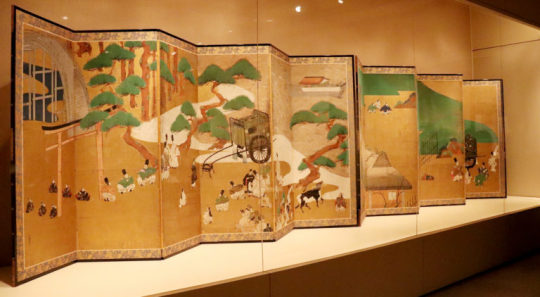
【かいわいの時】嘉祥三年(850)九月八日:八十島祭を行う(八十島祭の初見)
難波宮と摂津職が廃止された後にも、難波津において繰り返される宮廷祭祀があった。それは八十島祭と、伊勢斎王の解斎の禊である。いずれも前代からの伝統を引く古い行事であって、 平安時代に入って始められたものではない。 八十島祭は、即位儀礼の一環として挙行される神事で、大嘗祭の翌年に後宮の内侍司の女官が祭使として難波津に下向して生島足島神(大八洲之霊)を祭るものであった。
この神事は五世紀以来の古い即位儀礼の名残で、本来は全国土の国魂を新しい天皇の身体に付着させる呪儀であったらしく、奈良時代には、天皇自身が難波津に赴いて行っていたと推測される(第一巻第四章第四節1参照)。
しかし、史料に残る明らかなものはほとんど平安時代のものである。その初見は『日本文徳天皇実録』にみえる文徳天皇の即位に伴う嘉祥三年(八五〇) 九月のものである。鎌倉時代初めの後堀河天皇の元仁元年 (一二二四)まで行われ、以後廃絶した。この間約四〇〇年近くの間に、史料にみえるものは、二二回を数える。この祭儀は六国史には記載しないのが原則だったようで、その後も『日本三代実録』には記載がない。光孝天皇の場合も、『帝王編年記』に記載されるものである。恐らく記録に残らぬものが多かったに違いない(『新修大阪市史 2』)。
(写真)METで展示されている俵屋宗達「源氏物語関屋澪標図屏風」(ニューヨークビス03/09/2019)=ニューヨーク(撮影・吉田)
御社立ちたまて、所々に逍遥を尽くしたまふ 難波の御祓へ、七瀬によそほしう仕まつる 堀江のわたりを御覧じて 今はた同じ難波なると 御心にもあらで うち誦じたまへるを
御社をご出発になって、あちこちの名所に遊覧なさる。難波のお祓い、七瀬に立派にお勤めになる。堀江のあたりを御覧になって、「今はた同じ難波なる」と、無意識のうちに、ふと朗誦なさったのを(渋谷栄一訳)
住吉詣で偶然に元カノ(明石の上)とニアミスし動揺する源氏(当時29歳)。「今はた同じ難波なる」とは、百人一首にもみえる元良親王(890-943)の歌で、上の句の「わびぬれば今はた同じ難波なる」からとられています。源氏の心中にはもちろん「身をつくしても逢はんとぞ思ふ」という下の句が隠されていることでしょう。さて、かいわいに関係のある箇所といえば、もちろん、「堀江のわたり」。屏風では明石の上の乘る舟が描かれています。
源氏物語の注釈書の一つ『花鳥余情』(一条兼良1472)に「代始に八十嶋祭難波にてあり、典侍の人御衣をもちて参向して解除する事あり これみな難波のはらへの例也」とあり、「七瀬」と「八十島祭」は同じようなものとして扱われています。紫式部の時代の八十島祭は、三条天皇の長和二年(1013)十月、後一条天皇の寛仁元年(1017)十二月が記録に残っています。
19 notes
·
View notes